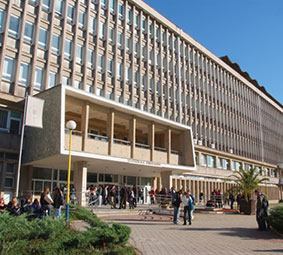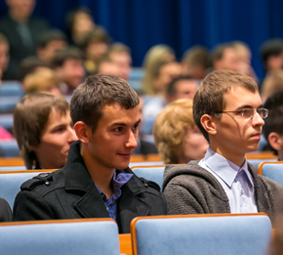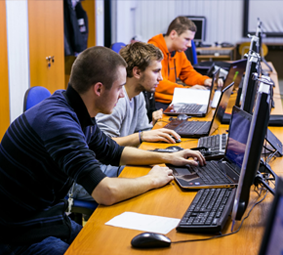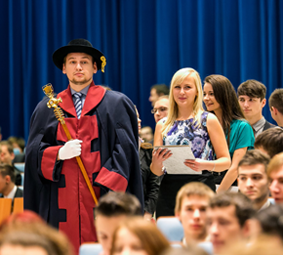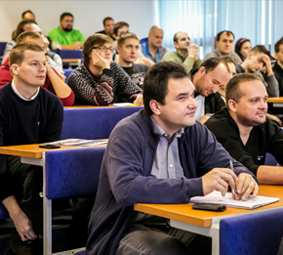Projects
Scientific projects
|
APVV
APVV-23-0408
1. July 2024 to 30. June 2028
In order to make it more approachable by practitioners, there is a need to bring the global architectural knowledge to the local level of software development companies and even individual teams and let it evolve there with respect to the context in which it's being applied. For example, design patterns would be possibly rephrased and adapted, particular pattern sequences would be created and supported by the success stories of that particular community (so-called pattern stories), and so on. Architectural knowledge needs to be evolved further with respect to the fact that contemporary software systems operate in the edge-to-cloud continuum. The edge-to-cloud continuum introduces new possibilities for variation that depend on how the system is deployed on edge, mist, fog, and cloud levels. Another challenge is how to effectively organize people in such environment. Parts of this, locally evolved knowledge would then find their way to the global level in scientific papers, books, or even blogs and such. In this project, we will develop methods of evolving local variants of design patterns and pattern languages, design pattern application in the edge-to-cloud continuum, applying software product lines in the edge-to-cloud continuum, and organizational pattern application in software development in the edge-to-cloud continuum. To support and evaluate the methods, we will develop the corresponding tools. We also expect to mine and express currently unknown design and organizational patterns and pattern languages for the edge-to-cloud continuum. We will develop four evaluation scenarios: patient health status telemonitoring, automotive software compliance, education content engineering, and open space development.
prof. Ing. Jaroslav Porubän PhD. |
|
KEGA
052TUKE-4/2025
1. January 2025 to 31. December 2027
V tomto projekte sa zameriame na aktualizáciu obsahu a zavedenie moderných prístupov do výučby predmetu Teória typov. Naším hlavným cieľom je zatraktívnenie klasického procesu výučby predmetu, zavedením nových edukačných nástrojov a metód pomocou moderných softvérových riešení. V rámci tohto cieľa vyvinieme softvér, ktorý bude interaktívne, resp. automatizovane emulovať procesy výpočtov prostredníctvom vizualizačných nástrojov simulujúcich klasický postup výpočtu človekom. Zároveň do výučbového procesu zahrnieme využitie interaktívnych dokazovacích systémov, pomocou ktorých je možné modelovať jednotlivé teórie typov, a dokazovať ich vlastnosti prostredníctvom formálnych dôkazov. V rámci čiastkových cieľov sa zameriame na tvorbu webového portálu, aktualizáciu a rozšírenie existujúcich študijných materiálov (učebnica a prednášky). Vypracujeme novú učebnicu venovanú využitiu interaktívnych dokazovacích systémov pre účely preberaných teórií typov. Pripravíme zbierku riešených príkladov a pracovné listy pre laboratórne cvičenia. Ing. Ján Perháč PhD. |
|
APVV
APVV-23-0196
1. September 2025 to 30. June 2028
Cieľom projektu EvPres je vyvinúť metodiku monitorovania stavu mostov, ktorá umožní presnú kvantifikáciu predpätých síl v predpätých betónových konštrukciách. Výsledky tohto projektu významne prispejú k hodnoteniu technického stavu mostov po celej Európe, čo pomôže predchádzať ich náhlemu zlyhaniu alebo predčasnému uzavretiu. EvPres tak predstavuje kľúčový krok k zvýšeniu bezpečnosti a efektívnemu využívaniu predpätých betónových mostov naprieč Európou. V rámci súčasného stavu poznania v oblasti kvantifikácie predpínacích síl v predpätých betónových mostoch boli identifikované tri hlavné výskumné medzery (RG):
Ing. Ján Perháč PhD. |
Educational projects
|
KEGA
030TUKE-4/2023
1. January 2023 to 31. December 2025
We present a project in which we will focus on redesign and expanding the existing course focused on formal languages and compilers. Our primary goal is to expand the content of the course to take into account the current knowledge in the field of processing, generation and translation of computer languages. The partial goals are focused on the creating of teaching materials, a web portal and supporting software for the emulation and visualization of selected algorithms and procedures in the field of formal languages. It is assumed that this will make it easier and faster for students to understand theoretical and practical principles and increase interest not only in the course, but also in broader foundations and principles. The expected benefit is then better availability of teaching content for students. It is also expected to increase the ability to properly and practically use the acquired knowledge and skills and to become one of the leading IT specialists.
doc. Ing. William Steingartner PhD. |

